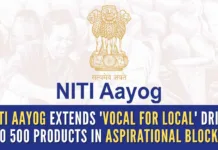
[dropcap color=”#008040″ boxed=”yes” boxed_radius=”8px” class=”” id=””]N[/dropcap]ITI Aayog’s proposal to declare top 20 educational institutions in the country as ‘World Class Institutions’ and exempt them from the regulatory rigours of University Grants Commission (UGC), All India Council of Technical Education (AICTE), Medical Council of India (MCI), etc by granting exceptional autonomy has come under fire from the Ministry of Human Resource Development, understandably whose role in remote controlling these institutions will be considerably diminished.
The proposal is to give absolute operational and financial autonomy to the institutions selected as world class to decide their choice of curriculum, location, recruitment of faculty from India or outside India and fix the tuition and other fees to be charged from students.
The opponents argue that if the government thinks that regulatory bodies like UGC, AICTE or MCI are hurdles to the development of institutions as world class then the government must rather reform these bodies or possibly abolish them.
However this must be seen from the perspective that institutions like UGC, AICTE, MCI, etc are essential to maintain a minimum level of standard in higher education among a plethora of institution run by Centre & State governments as well as private, aided and unaided but are a hindrance to achieve the maximum level of excellence missing in Indian institutions where they consistently fail in making the mark in global rankings of institutions for higher education and in research and development.
[dropcap color=”#008040″ boxed=”yes” boxed_radius=”8px” class=”” id=””]F[/dropcap]urther, the Solicitor General of India has argued that it is not feasible to have an exclusive law for just 20 institutions. This argument appears to be misplaced because there is actually one exclusive law for every University in India including for Central Universities. Further, there are different legal structures for different institutions such as IITs are statutory bodies incorporated under Institutions of Technology Act of Union Parliament whereas IIMs are ‘Not for profit’ companies registered under the Companies Act. An exclusive law for 20 world class institutions in India can be the starting point to gradually move to a universal law for all institution of higher education in the country.
The proposal by NITI Aayog is welcome and the Narendra Modi led NDA Government must move firmly and fast to bring it to a reality. Also it must be ensured that the proposal by one organ of the Government is not hindered by other organs else factually on ground there will be no difference between the working of the Planning Commission and the NITI Aayog.
- Social Security Payments : Tax or Savings - September 28, 2017
- India Uninc set for a giant leap post Demonetization & GST : A Contrarian opinion - September 3, 2017
- India Myanmar Strategic Economic Cooperation - September 1, 2017










